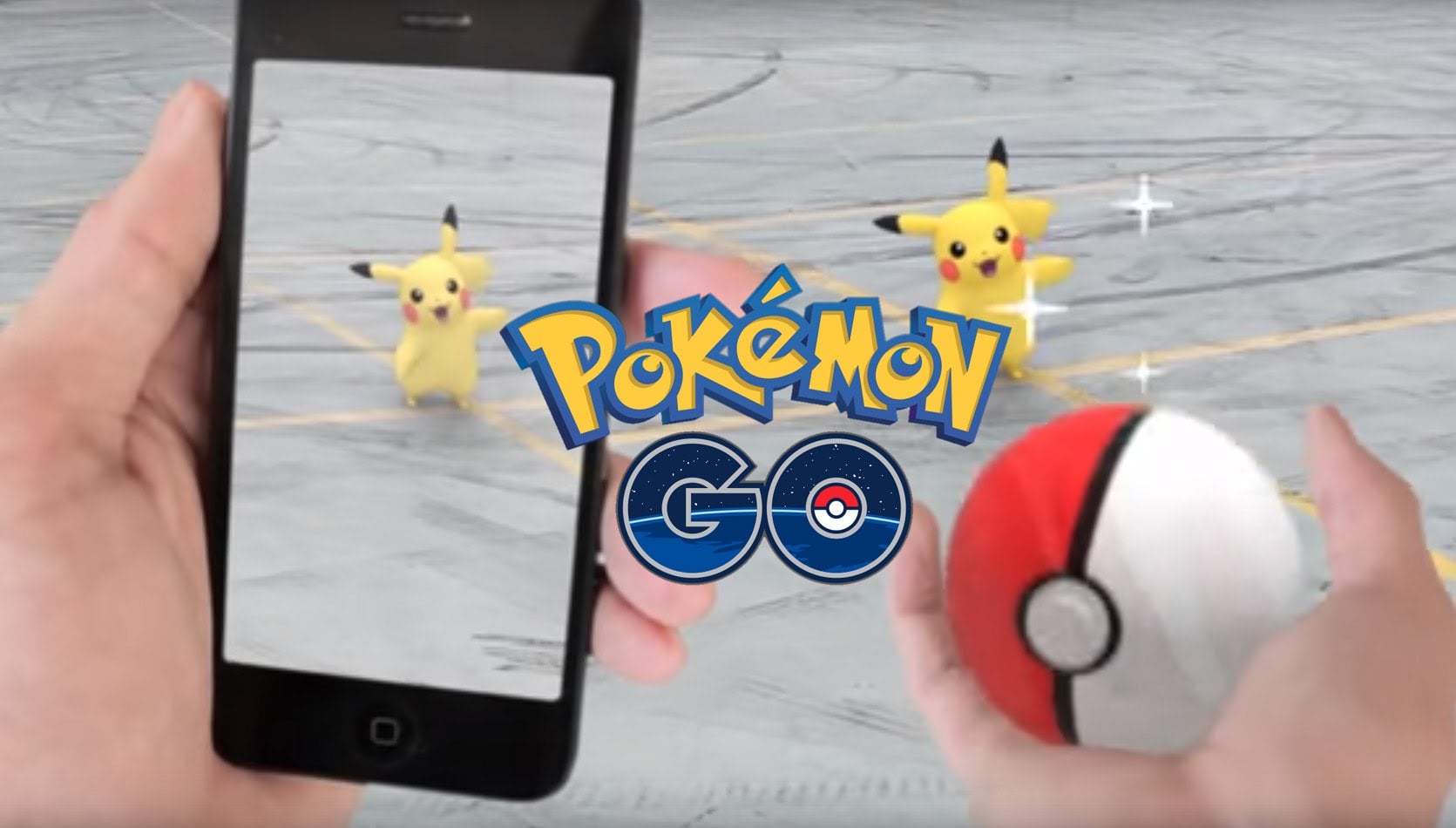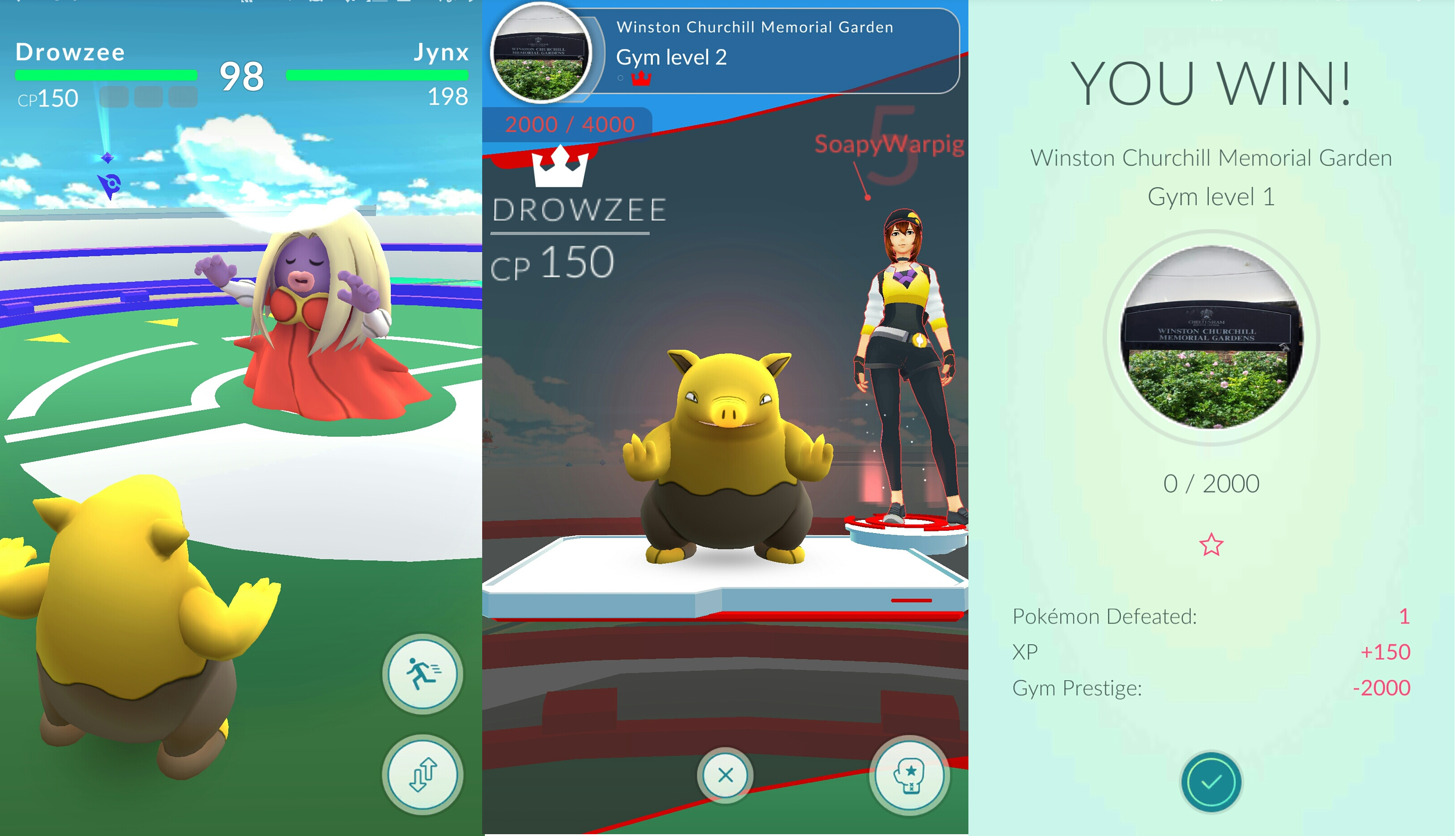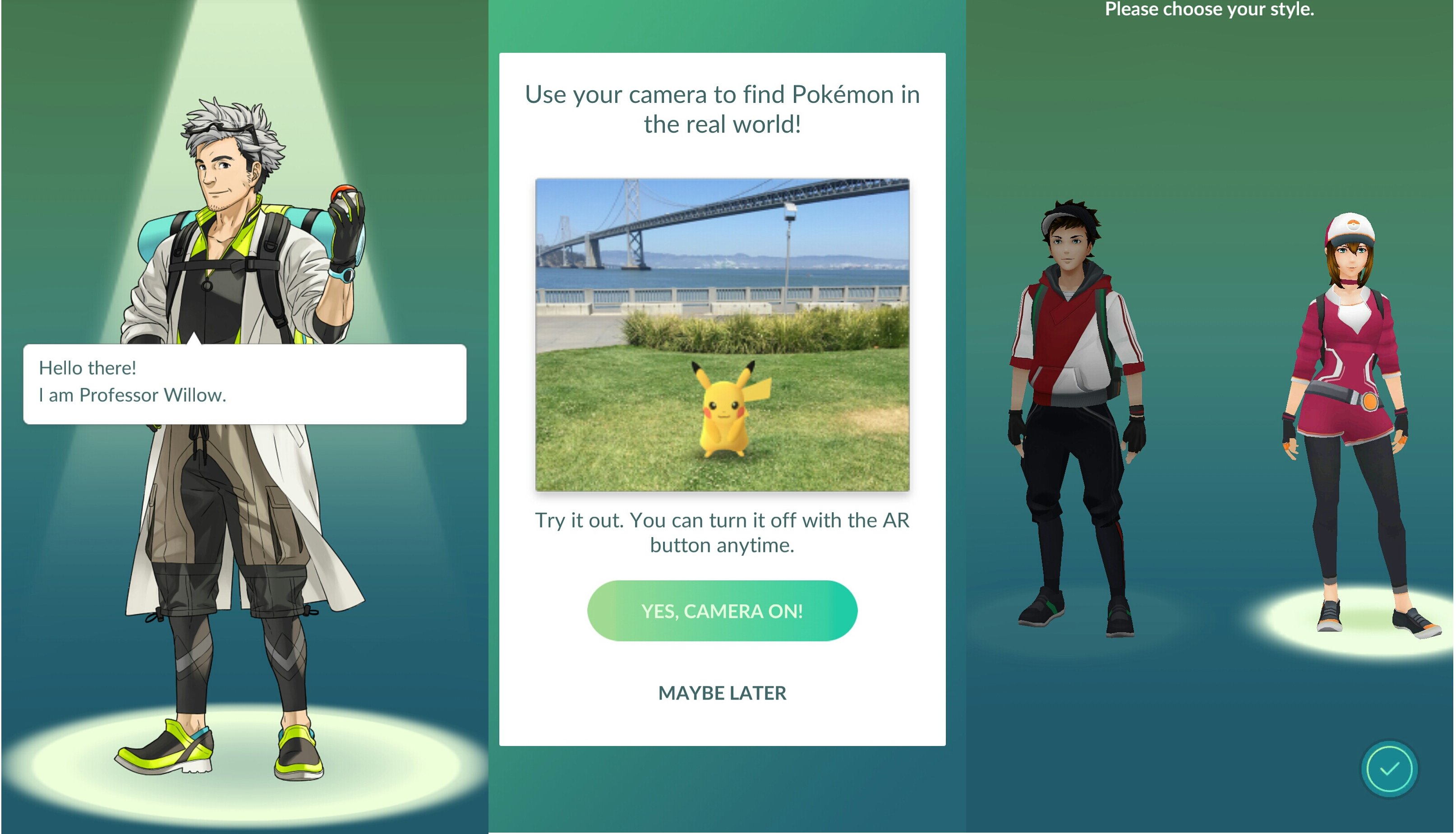
A few weeks ago, if you saw someone wandering around your neighborhood staring at their phone, you might have assumed they were lost. Now, it would not be too much of a stretch to think that they are busy locating, capturing, battling or training fictional creatures called Pokémon. Welcome to Pokémon Go, the free-to-play location-based augmented reality game that has taken the world by storm since its release on July 6. For those that are unfamiliar with the Pokémon brand and wondering what the latest hoopla is all about, here is a brief rundown.
Pokémon first emerged in 1995 as a Nintendo video game. Through the decades, it has grown into a massive franchise, which includes trading card games, animated movies and television shows, toys, and comics. While popular, it was primarily aimed at children and nostalgic adults who played the game when they were young. Ironically, the idea of creating the augmented reality game that has made Pokémon a household name came from an April Fool’s joke.
On April 1, 2014, Google Inc. announced “Pokémon Masters,” an app that would allow people to hunt the monsters using Google Maps. Though just a prank, the ensuing enthusiasm caught the attention of San Francisco-based startup Niantic Labs and its founder, John Hanke. The team, whose first augmented reality mobile app game, Ingress, has been downloaded more than 12 million times, decided to turn Google’s prank into a reality by partnering with Nintendo to create Pokémon Go.
Similar to previous Pokémon games, players travel the world to capture and battle the monsters in their quest to become the greatest Pokémon trainers. However, while the trips in the previous games were imaginary and conducted within the confines of a room, Pokémon Go forces players to get off their chairs and venture outside. That’s because the game uses the phone’s GPS and camera to help players “find” Pokemon in the real world, as well as discover various landmarks or Pokéstops, which offer items and experience points. This could mean finding a Rattata in your backyard, a Pidgey around the block, or a Pokéstop at your favorite neighborhood ice cream parlor.

The Pokémon are usually themed around the area they appear — for instance, players might find water Pokémon near rivers and lakes or ghost-type Pokémon around graveyards. The game itself involves just a single player trying to build the biggest collection of Pokémon. However, thanks to the fact that hundreds of fans often converge to areas and landmarks with Pokémon or Pokéstops at the same time, the game is also giving fans a chance to meet up with like-minded gamers and make new friends. An added advantage? It makes exercising fun!
But entertaining as it is, experts do caution players to be cognizant of their surroundings as they scour the neighborhoods to catch the imaginary monsters. The game has already resulted in some serious injuries, and the numbers can only increase as additional people join the fray. An additional issue has been an increase in trespassing, as players seek to capture Pokémon in neighbors’ yards, or even in places where gameplay is inappropriate, such as funerals or the Holocaust Museum in Washington, DC.

However, these concerns have not affected Pokémon Go’s popularity yet. Less than a month after its launch in the US, the game has reportedly been downloaded over 75 million times, and people are spending more time playing it than going on Twitter or Facebook.
In fact, Pokémon Go, which has yet to debut in many countries around the world, has far exceeded Niantic’s expectations, and the unprecedented demand is causing the company servers to crash frequently. While Hanke and his team can surmount the technology issues, the bigger challenge they face is introducing new features that help maintain the game’s viral success.

Meanwhile, critics are calling Pokémon Go a temporary phenomenon that will end within months, if not weeks. Fans, on the other hand, think the game is just the beginning of a long-term movement! What do you believe? Be sure to let us know by adding your comments below.
Resources: theguardian.co.uk, cnn.com, wikipedia.org, techchrunch.com,forbes.com